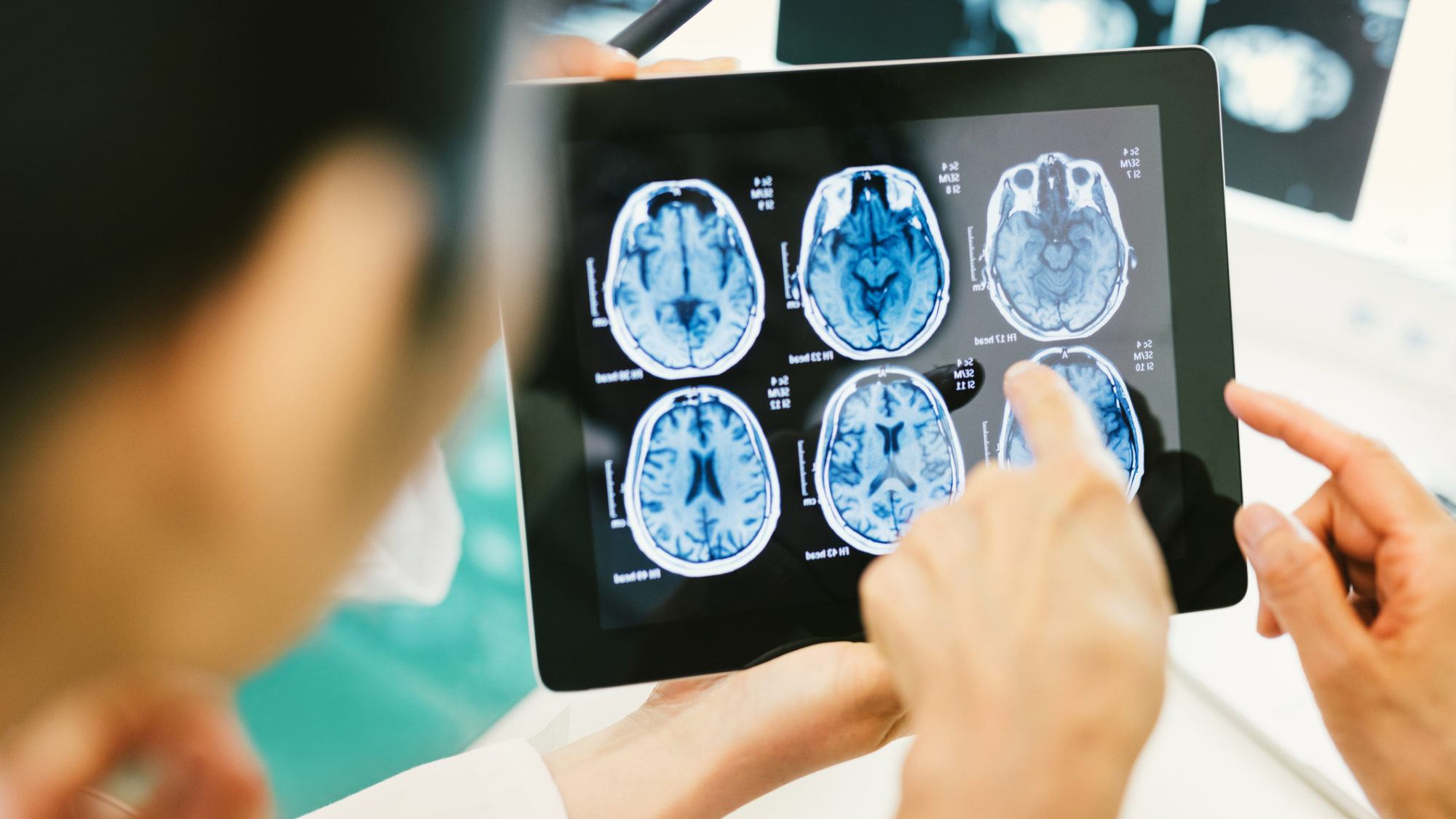
Magnetic Resonance Imaging (MRI)
What is magnetic resonance imaging (MRI)?
Magnetic resonance imaging (MRI) is a diagnostic test that uses a magnetic field and radio waves to create detailed images of organs (like the brain and spinal cord), tissues, and the skeletal system. MRI produces more detailed images than a computed tomography (CT) scan or standard X-ray.
Specialized MRI techniques used at Barrow Neurological Institute include:
- Cardiovascular MRI
- Diffusion imaging
- Functional MRI,
- MRI guidance
- Peripheral vascular MRI
- MR spectroscopy
- MR angiography

What is magnetic resonance imaging (MRI) used for?
Magnetic resonance imaging is the imaging test most frequently used to look at the brain and spinal cord. It may be used to determine the cause of the following problems:
- Tumors
- Stroke
- Multiple sclerosis
- Hemorrhage (bleeding)
- Spinal cord injuries
- Aneurysms
- Disorders of the eye and inner ear
- Brain infections
- Changes in thinking or behavior
- Hearing loss
- Headaches
- Speaking difficulties
- Vision problems
- Dementia
- Neck or back pain
- Blood vessel abnormalities
- Muscle weakness, numbness, or tingling
- Hormonal disorders
Am I a good candidate for magnetic resonance imaging (MRI)?
You may be a good candidate for magnetic resonance imaging (MRI) if you are having symptoms of a neurological problem.
An MRI scan is painless and does not use radiation. However, you may not be a good candidate for MRI procedure if you have an implanted device, such as a pacemaker, or some type of metal in your body because of the strong magnetic field. If you have claustrophobia, you may be given a sedative to help you relax during the procedure.
You may not be a good candidate for MR angiography if you have impaired kidney function or have had a previous allergic reaction to a contrast agent.



